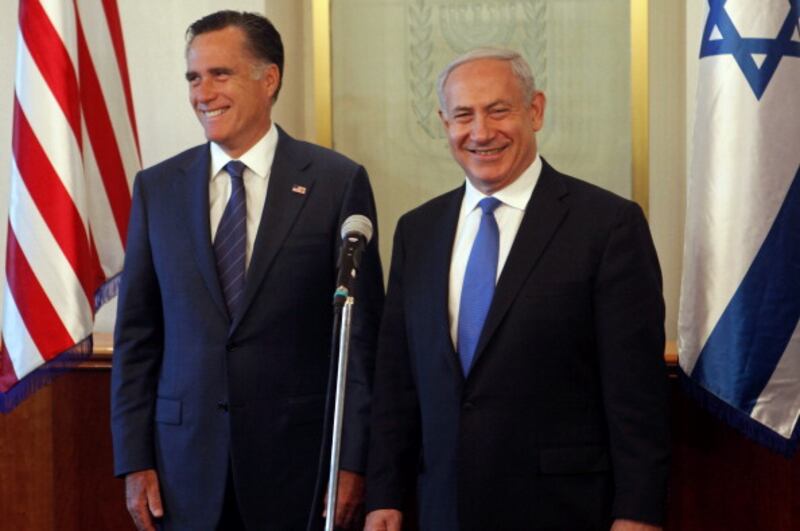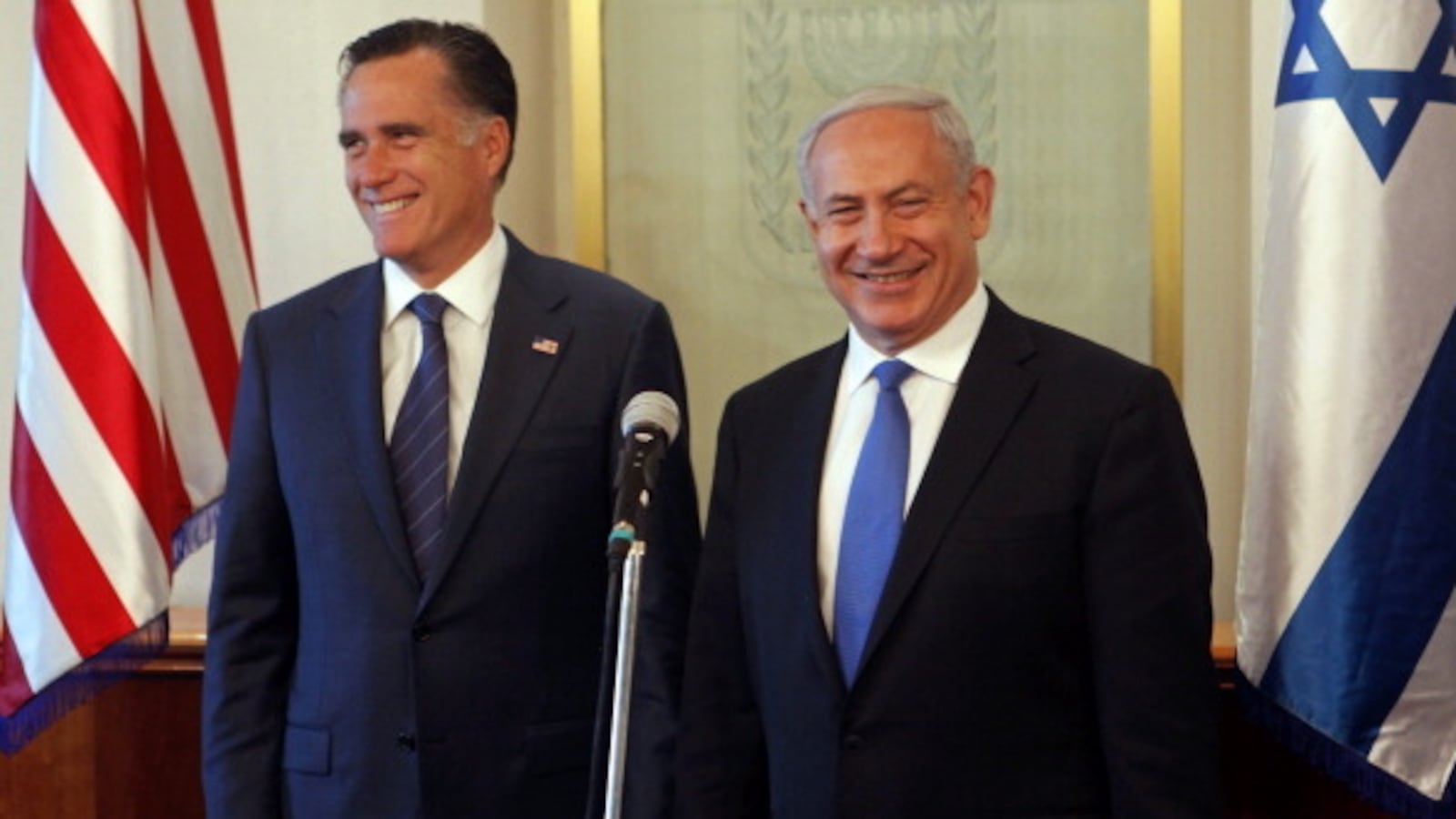Don’t let the U.S. elections fool you, Israel is not that close a U.S. ally. The 34 mentions of Israel during the foreign policy debate confirmed that electoral rhetoric is a genre of fiction. The actual pattern of military, political, and intelligence ties between the two countries is rather less impressive.
President Barack Obama and former Governor Mitt Romney regularly make outlandish and misleading claims that portray the U.S.-Israel alignment as a special relationship. According to Obama “no ally is more important than the state of Israel.” Even more bizarrely, Obama says he is strengthening ties, which might be unnecessary as he also says bonds with Israel are “unbreakable.” Romney claims that ties are “deep and cherished.” This is also the party line of many American Jewish organizations and the applause line of most members of Congress.

U.S.-Israel ties are neither special nor familial. The two countries do each other numerous favors. The U.S. protects Israel at the UN. The Israelis reciprocate with unique intelligence assistance. Israel is better at the tricky business of gathering and analyzing secrets than the U.S. Similarly, Israeli companies sell the U.S. innovative defense equipment. At the same time, the U.S. is Israel’s largest arms supplier. Within its region, Israel is a useful U.S. ally.
From a global perspective that makes for a second-class relationship, one that is a rung lower than the U.S. alliances with the UK, Canada, Australia, and New Zealand. The difference is that these countries and the U.S. share intelligence with each other in a remarkable and unprecedented arrangement that has been running since 1946. For all the speeches, the U.S. has no such ties with Israel—and nobody is suggesting them.
This is no surprise. The Israelis are wary of the extensive U.S. connections to Arab security services with which they are technically still at war. For their part, the Americans claim that Israel has been untrustworthy when in receipt of secret information (the UK has similar concerns). The impression of sloppiness with other people’s secrets has been reinforced by Israeli defense minister Ehud Barak’s public discussion of U.S. intelligence analyses of Iran—information that the U.S. shared with him in confidence.
Moreover, a critical part of the U.S. agreement with the UK, Canada, Australia, and New Zealand is that they are sworn never to spy on each other. The same cannot be said for Israel, which has conducted espionage against the U.S. more than once—a fact of which we are reminded by the campaign for clemency for Jonathan Pollard.
The second dampener on U.S.-Israel relations is that two’s company, but twenty-two is regional influence. The Israel focus of the debate obscures the longstanding U.S. ties to the Arab states. The U.S. supplies many of these countries with substantial quantities of weaponry, just like with Israel. This U.S. military link to the Arab states is routinely overlooked. The U.S. and some Arab states have conducted multiple joint combat operations—a rarity in U.S.-Israel military ties. Convenient though it is for both presidential candidates to forget Iraq, U.S. forces fought side by side with Iraqi Arabs and Iraqi Kurds in that country for eight years.
Similarly, for all the mythology about an influential, policy bending pro-Israel lobby, the U.S. has often accommodated its Arab allies. President George W. Bush, despite his initial disdain for the peace process, repeatedly sought to revive it, proclaiming the Road Map for Peace in 2003 and convening the Annapolis conference in 2007. Why does the U.S. listen to the Arab states? One reason is that providence, a concept favored by Mitt Romney, has handed the Arab countries over 40% of the world’s oil reserves.
So when Mitt Romney promises to move the U.S. embassy from Tel Aviv to Jerusalem, his pledge has the certainty of a roulette table. In office, Romney will be told by U.S. allies that transferring the embassy would prejudge negotiations on the final status of Jerusalem and compromise the U.S. position as the lead mediator.
Politicians like grand plans to change the direction of U.S. policy. After all, Obama was committed to closing the Guantanamo Bay prison. He signed the order less than two days into his term and specified that it be shut within a year. It remains open.
So ignore the hyperbole of the candidates and the hysteria of the partisan commentators. The U.S. is not going to abandon Israel, nor force the country into a peace settlement that it does not want, regardless of who takes office. The U.S.-Israel relationship is about practical politics, not romance.






